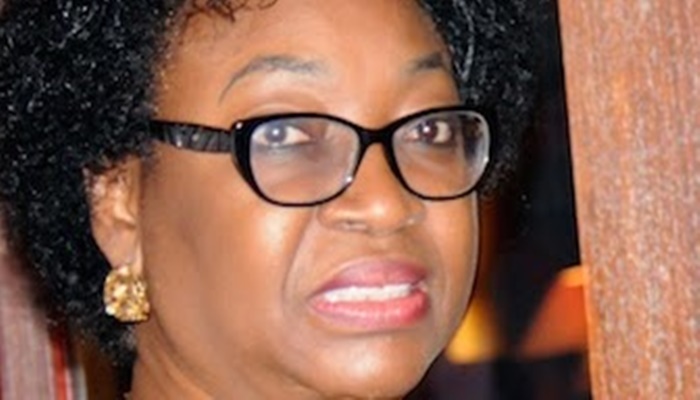
The Nigerian Association of Resident Doctors (NARD) has tackled the Federal Government for labelling its five-day warning strike as illegal.
Speaking as a guest on Channels Television’s Sunrise Daily on Wednesday, NARD National President, Emeka Orji, challenged the Federal Government to point out the part of the law that makes the strike illegal.
A two-week ultimatum was issued to the government by NARD on April 29, 2023, to begin the implementation of all pending agreements or the doctors will embark on a nationwide strike.
The strike started at 8:00 am on Wednesday, May 17, to end on Monday, May 22.
A day before the warning strike, the Minister of Labour and Employment, Chris Ngige, advised the doctors to avail themselves of the opportunity for social dialogue with their employer, rather than embark on a warning strike which is unknown to the law.
However, Orji posited that there was no law that makes a warning strike illegal.
“I believe that there is no law that says that a warning strike is illegal. If they say a warning strike is illegal, let them prove it to us. We want to see the part of the law that says that a warning strike is illegal.”
Orji said that the NARD had satisfied all the provisions before embarking on a strike.
He added that the National Executive Council (NEC) has given the association the green light to go on the warning strike.
Speaking further, Orji pointed out that if NARD is called to discuss and address these issues, it is believed many of them can be addressed in a matter of days and there won’t be a need for all the crises in the health sector.
Tinubu rejects Atiku, Obi’s request for live broadcast of election tribunal
Bola Tinubu, president-elect, and the Vice President-elect, Kashim Shettima, have rejected an application by Atiku Abubakar and the Peoples Democratic Party for a live broadcast of electoral petition proceedings, describing it as an “abuse of the processes of this honourable court.”
Peter Obi, Labour Party presidential candidate, had also asked for live broadcast of court proceedings.
But the duo of Tinubu and Shettima urged the Presidential Election Petition Court to dismiss the application, arguing that the relief sought by the applicants is not such that the court could grant it.
In their response to the application, they said, “With much respect to the petitioners, the motion is an abuse of the processes of this honourable court.”
They further said the request of Atiku and his party should not be granted because the court “is not a rostrum or a soapbox. It is not also a stadium or theatre. It is not an arena for ‘public’ entertainment.”
Tinubu and Shettima responded through their team of lawyers, led by Chief Wole Olanipekun.
They stated, in the counter affidavit, that the application relates to policy formulation of the court, which is outside the PEPC’s jurisdiction as constituted.
“The application also touches on the powers and jurisdiction invested in the President of the Court of Appeal by the Constitution, over which this honourable court as presently constituted cannot entertain.
“The application touches on the administrative functions, which are exclusively reserved for the President of the Court of Appeal.
“The application is aimed at dissipating the precious judicial time of this honourable court.
“The said application does not have any bearing with the petition filed by the petitioners before this honourable court.
“It is in the interest of justice for this honourable court to dismiss the said application filed by the petitioners,” they said.
In an attached written address, the respondents faulted the applicants’ reference to the fact that virtual proceedings were allowed during the COVID-19 pandemic.
They argued that Atiku and the PDP failed to point out to the fact that practice directions were made by the respective courts for the exercise.
“Another angle to this very curious application is the invitation it extends to the court to make an order that it cannot supervise.
“The position of the law remains, and we do submit that the court, like nature, does not make an order in vain, or an order which is incapable of enforcement,” the respondents stated.
Furthermore, they stated: “At the very best, this application is academic, very otiose, very unnecessary, very time-wasting, most unusual and most unexpected, particularly, from a set of petitioners, who should be praying for the expeditious trial of their petition.
“Petitioners have brought their application under Section 36(3) of the Constitution which provides that the proceedings of a court/tribunal shall be held in public.
“The word ‘public’ as applied under Section 36(3) of the Constitution has been defined in a plethora of judicial authorities to mean a place where members of the public have unhindered access, and the court itself, sitting behind open doors, not in the camera.
“Even in situations where a class action is presented, the particular people constituting the class being represented by the plaintiffs or petitioners are always defined in the originating process.
“Here, in this application, the public at whose behest this application has been presented is not defined, not known, not discernable.
“Beyond all these, it is our submission that the court of law must and should always remain what it is, what it should be and what it is expected to be: a serene, disciplined, hallowed, tranquil, honourable and decorous institution and place.
“It is not a rostrum or a soapbox. It is not also a stadium or theatre. It is not an arena for ‘public’ entertainment.
“With much respect to the petitioners, the motion is an abuse of the processes of this honourable court.”






